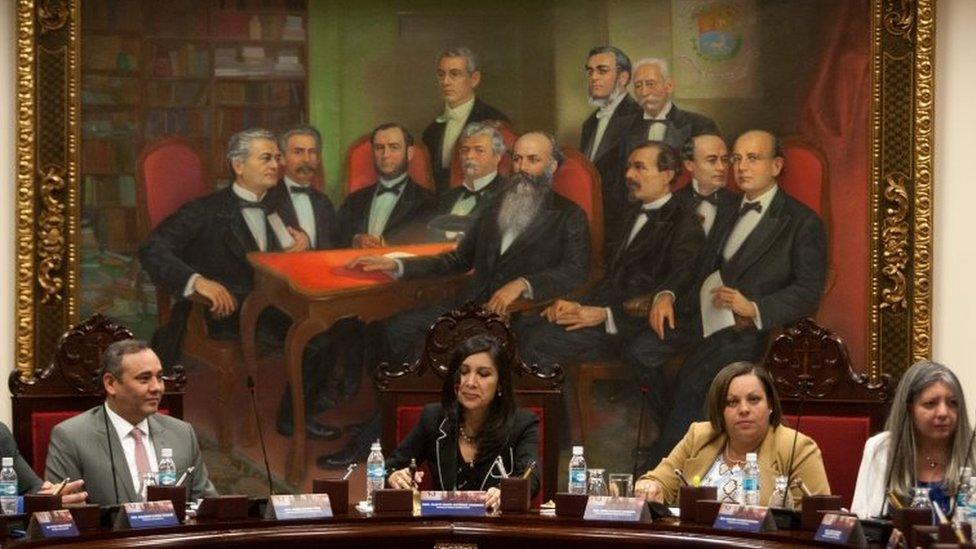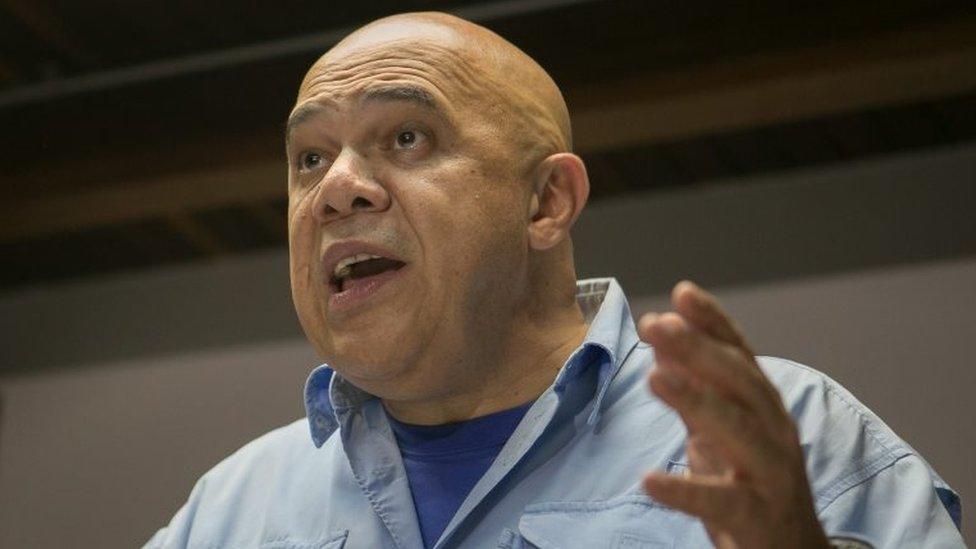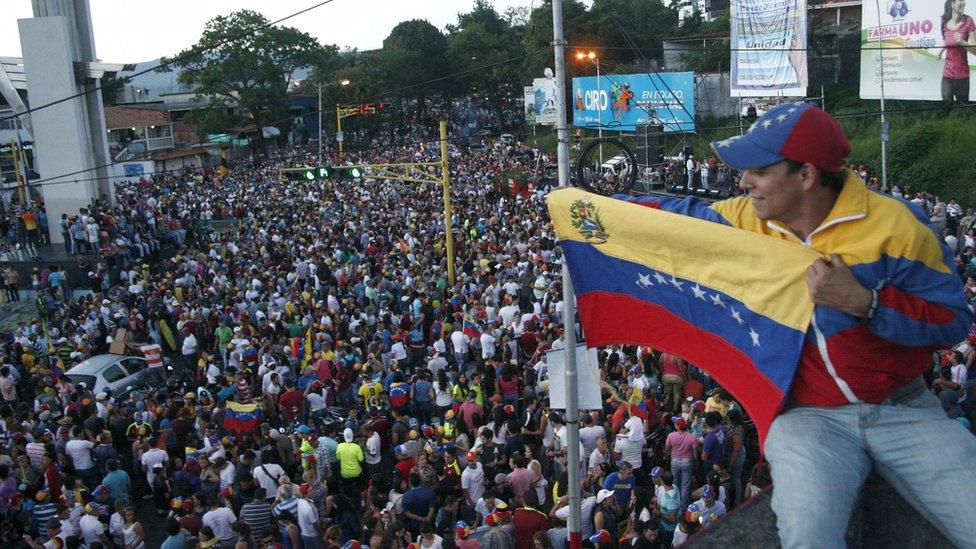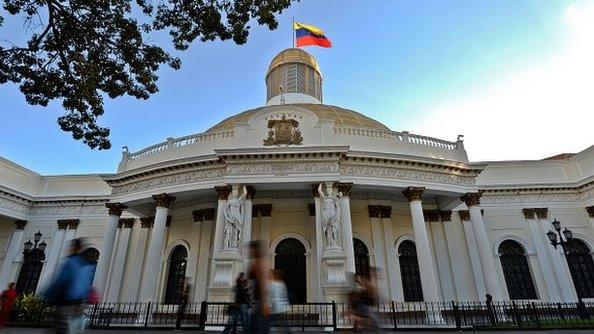Venezuela Socialists dispute opposition win in eight seats
- Published

The Supreme Court said it had received motions by losing candidates disputing the results
Members of Venezuela's Socialist party are disputing the election of eight opposition candidates in legislative elections held on 6 December.
The opposition won a two-thirds majority which enables it to challenge socialist President Nicolas Maduro.
On Tuesday, the Supreme Court said some losing candidates had filed challenges but it did not specify the grounds on which the appeals were made.
Members of the new National Assembly are to take up their seats on Tuesday.
It will be the first time in 16 years that the opposition MUD coalition will hold a majority in the legislative body.
But if the Supreme Court were to uphold just one appeal, the MUD would fall short of the 112 seats it needs for a two-thirds supermajority.
A supermajority gives the opposition key powers it would not have with fewer seats.
Among them are the power to remove Supreme Court judges, appoint key officials such as an independent attorney general, and passing constitutional amendments subject to ratification by referendum.
'Dysfunctional democracy'
The secretary-general of the opposition MUD coalition, Jesus Torrealba, condemned the challenges to the results.

Jesus Torrealba said the motions were a "legal trick to steal the election"
"You can't use legal tricks to steal something the voters didn't want to give you," he said.
"We're not living in a functional democracy," he added.
President Maduro on the other hand said it was the opposition that was "playing dirty". "Criminals were buying votes," he said.
It is not clear how long the Supreme Court will take to rule on the appeals.
The opposition has also denounced what it says are attempts by socialist members of the National Assembly to keep power beyond the end of the legislative period.
Outgoing National Assembly president Diosdado Cabello called a number of extraordinary sessions last week at which 13 new Supreme Court judges and 21 substitute judges were named.
President Maduro has convened a meeting of socialist supporters for January to set the course for the "Bolivarian revolution", which his party advocates.
- Published9 December 2015

- Published7 January 2016

- Published7 December 2015